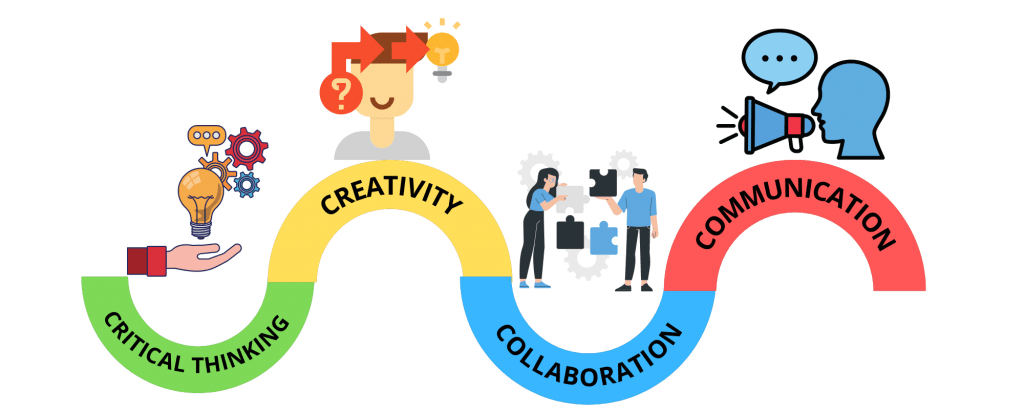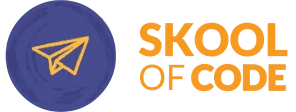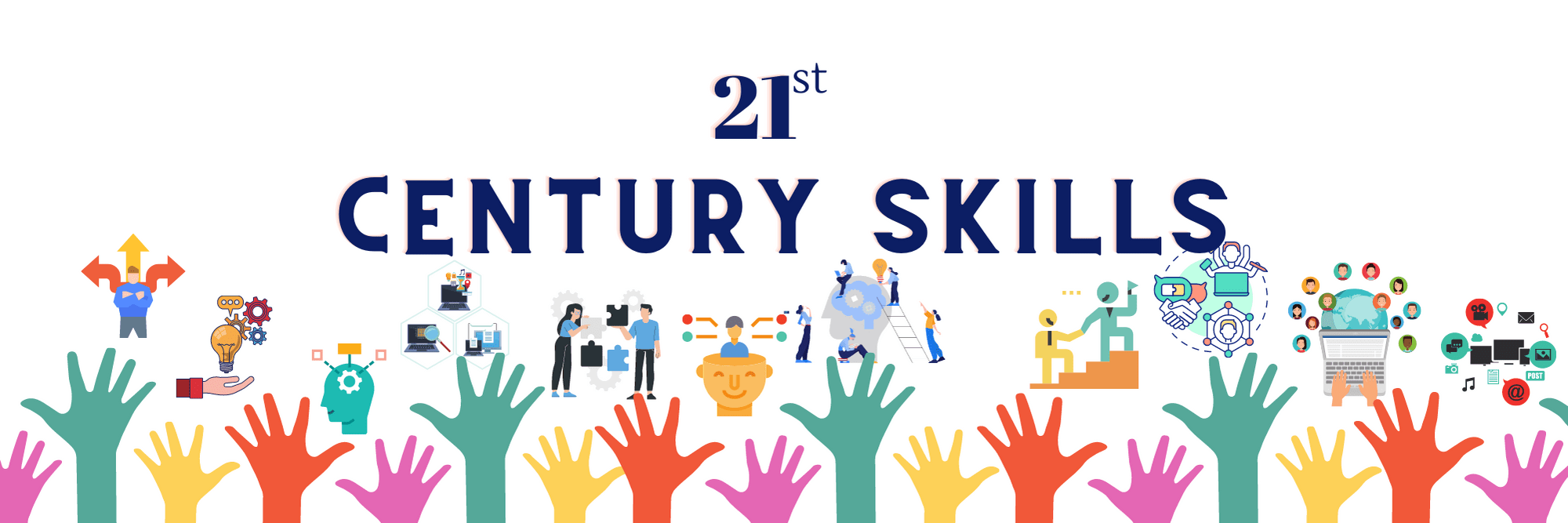With the world and job market changing so rapidly, it’s more important than ever for students to develop what are known as “21st-century skills.” These are the abilities that students need to be successful in the ever-changing landscape of the 21st century.
Previously, knowledge and a college degree were the only requirements for professional success. Please understand that this is no longer the situation. A triad of learning, reading, and life skills is required to survive in today’s competitive world. While some of these can be improved at home, others need to be polished and elaborated by a professional team. All of it, in turn, paved the path for creating platforms for kids coding and programming for kids.
What are 21st Century Skills?
21st-century skills refer to a set of abilities that children need to develop to succeed. These skills go beyond the basics of reading, writing, and math. They include major three categories: learning, literacy, and life skills. These major categories further include all 12 of the 21st-century abilities that are important for a student’s professional development.
Why Are 21st Century Skills Important?
The reason why 21st-century skills are so important is that they are necessary for success in a rapidly changing world. The rapid spread of technology has resulted in the replacement of human labor with automated labor, and information is now easily accessible to anybody who wants it. The rote memorization of information is no longer a necessary skill. Instead, students need to be taught how to digest the information that they are given, which includes being able to recognize reliable sources, comprehending the material, and applying critical thought to it. Additionally, as the world becomes more connected, our children must know how to communicate and collaborate with others. And finally, with an ever-growing amount of information available at our fingertips, it’s more important than ever that kids know how to think critically and discern what information is accurate and useful.

How Can We Help Our Kids Develop 21st Century Skills?
There are several ways that we can help our kids develop 21st-century skills. It is essential to begin acquiring abilities relevant to the 21st century at an early age. One way is by incorporating them into our homes and schools. At home, we can model these behaviors for our kids and encourage them to use technology responsibly. Some schooling systems don’t put much emphasis on skills like critical thinking or communication, but SkoolofCode has a solution for you. Our online coding classes and age-appropriate curriculum help to teach them these skills early on. Teaching coding to kids in small groups makes it easier for students to talk to each other and take part in building programs and designing games.
At school, teachers can create opportunities for students to work together on projects and use technology in creative ways. Another way we can help our kids develop these skills is by providing them with opportunities to explore their interests outside of school. This might involve signing them up for extracurricular activities or taking them on field trips related to their interests. By providing our kids with exposure to a variety of experiences, we can help them develop a well-rounded skill set that will serve them well into the future.
As shared earlier, 21st Century skills are classified into one of three groups:

Let’s study these skills in detail and see how each category help in building 21st Century warrior.
Category 1: Learning Skills
The first category belongs to Learning skills, which help students to understand how our brain adapts and improves to new situations. Learning skills comprise four C’s:

Critical Thinking and Problem Solving:
The ability to think critically and solve problems is another essential skill for 21st-century learners. With the vast amount of information available at our fingertips, it’s more important than ever for students to know how to sift through all of it and find reliable sources. In addition, being able to identify problems and find solutions is a skill that will serve students well in their personal and professional lives.
Creativity and Innovation:
In today’s world, employers are looking for employees who are creative and innovative thinkers. With so much competition out there, students need to be able to think outside the box and come up with new ideas. Creativity and innovation will help set students apart from their peers when they enter the job market.
Collaboration:
To be successful in school and their careers, students need to know how to work well with others. Collaboration is a key skill in the 21st century because so much of our work is done in teams. Whether it’s working on a group project or simply being a part of a meeting, collaboration skills are essential for success.
Communication:
In the 21st century, communication is more important than ever. With technology playing such a big role in our lives, students need to know how to communicate effectively both in writing and verbally. Strong communication skills will help students in everything from applying for jobs to collaborating on projects.
Learning a skill like coding classes for kids can be daunting, but it’s important to remember that everyone has to start somewhere. The most important thing is to just get started and keep at it. Coding is a great skill for kids (and adults) to learn because it helps them think creatively, solve problems, and work collaboratively. It’s like building learning skills while having fun.
Category 2: Literacy

In today’s world, literacy skills are more important than ever. With so much information available at our fingertips, students must be able to read and understand complex texts. Information literacy, technology skills, and digital literacy are becoming increasingly important in our fast-paced, digital world. As more and more information is shared online, students must be able to navigate the Internet safely and effectively. Technology skills allow students to do just that, as well as giving them the ability to use a variety of tools and resources. Media literacy goes hand-in-hand with these skills, teaching students how to critically analyze the information they see online.
There are several ways parents can help their children develop these important skills. One way to promote information literacy is to offer online coding classes for students. These classes can introduce kids to the basics of coding and help them develop critical thinking and problem-solving skills. In addition, parents can also play a role in promoting information literacy by modeling responsible online behavior for their children. Encouraging them to take online coding classes or participate in other activities that require them to use technology can be a great start.
Another example, is when looking for information online, show your child how to use reliable sources such as Wikipedia or library databases. Explain why it’s important to be discriminating about the information we consume and share.
By teaching kids information literacy, technology skills, and digital literacy, we can help them build a foundation for success in the digital age. Additionally, discussing media with them and helping them to understand how to critically evaluate the information they see can be helpful. In addition, online coding classes can also help parents well understand their children’s online activity. Whether you’re a student or a parent, coding classes can help you develop the literacy skills you need to succeed in today’s world.
Category 3: Life Skill
It is often said that life skills are the key to success in life. However, what exactly are life skills?
Put simply, life skills are the abilities and knowledge that students need to function effectively in society. This includes everything from basic social skills and etiquette to more complex abilities like financial management and critical thinking. While some students may naturally pick up these skills through trial and error, others may benefit from more direct instruction. Parents can play an important role in teaching life skills to their students by modeling positive behavior and providing opportunities for children to practice new skills. Additionally, schools can help by teaching students about social ethics and providing opportunities to develop ethical values. By instilling these life skills in students, we can help them build the foundation for a successful future. However, there are a few life skills that are essential for all students to master.

Flexibility is one of the most important life skills that students can learn. The ability to adapt to changing circumstances is essential for success in both personal and professional settings. Flexible students will be able to handle unexpected challenges and opportunities in their lives.
Leadership is another essential life skill. Students who have strong leadership skills will be able to motivate and inspire others. They will also be able to effectively manage team projects and work toward common goals.
The initiative is another important life skill for students to develop. Those who take initiative are often proactive and able to get things done without being asked. They are also usually more productive than those who wait for others to give them direction.
Finally, social skills are essential for all students. Those who have strong social skills will be able to build positive relationships with others. They will also be better able to resolve conflict and communicate effectively.
By teaching students how to code, online coding classes provide them with invaluable skills that can be applied in a variety of situations. For instance, coding requires students to be organized and focused to complete a project. This attention to detail can translate into better time management skills in other areas of their lives. In addition, coding often requires collaboration to achieve the best results. As such, online coding classes can also help students develop important social skills.
Whether they realize it or not, by taking online coding classes, students are gaining essential life skills that will benefit them now and in the future. And as a bonus, they’re also having fun and learning something new!
How To Achieve This Level of Excellence?
The best strategy combines diligent work with insightful analysis. Tell you what; this can work miracles.
1. Adapting the modifications
The change is the first thing we need to understand and adopt. For instance, how many of us used computers and laptops for knowledge access in the past? So, I want to tell you that adopting the modern digital means of learning is the key. There are various platforms, virtual classrooms, and learning communities. Did you know? It is exceptionally effective for online coding classes for kids. However, it demands a great deal of work to hunt for the best.
2. Coordinated learning
It suggests a setting where there is an interchange of ideas. Usually, the idea exchange occurs between students and among teachers and students. The concept of global learning is essential. This mass learning can produce newer, better ideas and outcomes. In turn, we can make our kids capable of competing with almost everyone.
3. Targeted knowledge
It involves teaching and training kids in a unique way. Choosing intensely trained professionals can make this possible. A team that focuses on assessments and embedded curriculum. In all cases, a successful team manages well to overcome the gatekeeper of knowledge. I believe it’s the only means to make things meaningful and creative. It helps to transform the students. Results show that this has made coding for kids easier.
4. Streamlining ideas into actions
It involves encouraging social learning in interactive, teacher-led digital creative spaces. Knowledge crowdsources brought by collaborations and social media.
Centered learning is, therefore, promoted by these means. Innovative thinking is strengthened when these qualities come together. In turn, they can reinforce, inspire new pedagogical approaches, and empower today’s students. This can transform the world of tomorrow.
Conclusion
With the rise of technological advances and the increased importance of digital literacy, it is more important than ever for students to learn 21st-century skills. These skills include things like coding, digital marketing, and web design. While some schools are beginning to offer coding classes and other similar courses, many students are still not getting the exposure they need. However, there are several ways that parents can help their children hone these skills. One way is to enroll them in coding classes or programs outside of school. Several online resources can be used to help children learn these skills. By ensuring that their children have the opportunity to learn 21st-century skills, parents can help set them up for success in college, career, and civic life.
To this end SkoolofCode provides age-appropriate STEM-based coding courses which have been designed by experts who know what makes kids tick; thusly implementing innovative practices such as allowing students plenty of time while working individually (which helps them learn critical thinking skills), building their problem solving and logical skills through a curriculum designed by experts. So, why wait and Book a FREE trial class today.
Do leave your queries at learn@skoolofcode.us. See you soon with another great post!
By – Ms. Manpreet Virk, Head of E-learning and an educator at SkoolofCode with degree in M.Phil. and Master in Computer Science. She is passionate about learning and teaching young minds.

